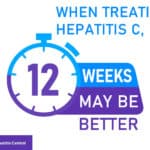Esophogeal Varices
Occurring in approximately one in every 10,000 people, bleeding esophogeal varices are swollen veins in the esophagus or the upper part of the stomach that begin to bleed. They can be a life-threatening complication of portal hypertension, where there is increased blood pressure in the primary blood vessel leading into the liver. Because veins are not designed to handle high internal pressure, the engorgement of veins causes them to be fragile and bleed easily. If a large volume of blood is lost, signs of shock will develop (pallor, a rapid and weak pulse, rapid and shallow respiration and lowered systemic blood pressure).
Common culprit
Alcoholic and viral cirrhosis are the leading causes of portal hypertension in Western countries. As liver disease progresses, the risk of developing cirrhosis follows. Cirrhosis is the permanent scarring and hardening of liver tissue, which subsequently prohibits hepatic circulation. This hampering of blood flow through the liver increases the hepatic pressure that causes portal hypertension and sets the stage for blood vessels to burst. A bleeding esophogeal varice is the most serious complication in patients with cirrhotic liver disease.
To read the complete article, including how to treat and prevent this serious condition click here.







